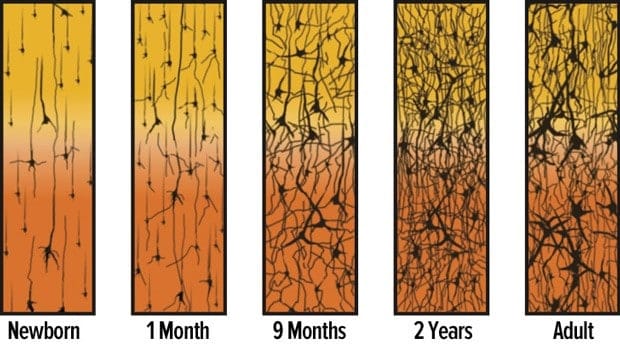Why is it so important to ensure that children have quality care and educational experiences in the earliest years of life? A nurturing and supportive environment during a child’s first years lays the foundation for future success in school and life. To truly appreciate why this time of life is so crucial, it helps to understand a little bit about brain science and early brain development.
The First Years of Life: What does science tell us?
During the first several years of a child’s life, the brain forms over one million neural connections every second.
Babies’ brains are quite literally wired to learn. This rapid absorption of information creates new neural connections and builds the architecture of a baby’s brain. For comparison, adult brains have thicker, but fewer, synaptic connections.
This makes adults more efficient at doing what they’ve done before (e.g., speaking, writing and reading) but less effective at learning new things, such as a foreign language.
Original source: Adapted from Corel, JL. The postnatal development of the human cerebral cortex. Cambridge, MA: Harvard University Press; 1975. Link source: Urban Child Institute
The above figure illustrates the rapid rate at which synapses are formed in the first few years of life. One can see that adults have thicker, but fewer synaptic connections.
Everything in a child’s environment — experiences, relationships with parents and caregivers and environmental factors — influences brain development and growth.
It is no surprise, then, that early experiences have a profound impact on a child’s future ability to succeed in school, work and life.



